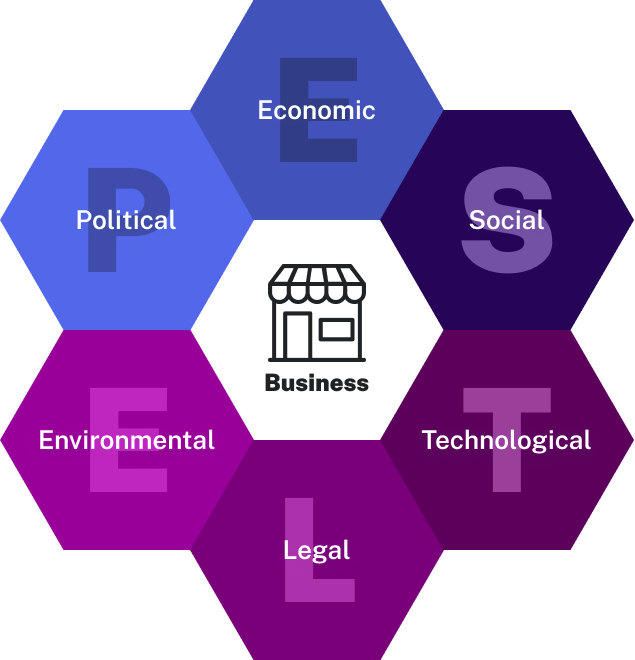- Identify external forces that affect businesses
- Understand how external forces affect businesses
External Forces
Businesses do not operate in a vacuum, immune to the forces that shape our everyday life. Just like people, businesses interact with their surroundings, and just like people, businesses react differently to their environment. How they respond—and how quickly they respond—to these external forces can make the difference between success and failure, especially in today’s fast-paced business climate. Businesses operate with all of these forces in their environment simultaneously, and factors in one category can affect or complicate factors in another. We can organize the external forces that affect business into the following six categories:
- Political forces
- Economic forces
- Social forces
- Technological forces
- Legal forces
- Environmental forces

Political Forces
Government policies have a huge impact on businesses. Tax policies at all levels of government can influence where businesses decide to locate their operations and how they make investments. The low corporate tax rate is one reason that companies such as Apple, Microsoft, and Google established offices in Ireland and are some of the largest employers there.[1] Actions by the government can favor certain industries by providing financial incentives to encourage production. For example, in the U.S., the CHIPS and Science Act of 2022, set aside $52.7 billion in subsidies to support businesses involved in the manufacture of semiconductor chips.[2] Receiving a government subsidy essentially lowers the cost of production for the business.
Businesses that source supplies from other countries or export their goods abroad are affected whenever governments have disputes over trade. War or conflict in another country can also affect government policies. The Russian invasion of Ukraine in 2022 resulted in the United States and many European countries imposing a variety of sanctions that limit trade, freeze assets, and limit how banks may transfer money, among other things.[3] As you can see, political forces are constantly changing and can be unpredictable.
- Sanyal, Shourjya. “Is Ireland Really A Startup Nation?” Forbes, November 27, 2018. https://www.forbes.com/sites/shourjyasanyal/2018/11/27/is-ireland-really-a-startup-nation/ ↵
- PricewaterhouseCoopers. “The CHIPS Act: What It Means for the Semiconductor Ecosystem.” Accessed July 20, 2023. https://www.pwc.com/us/en/library/chips-act.html ↵
- Bown, Chad. “Russia’s War on Ukraine: A Sanctions Timeline.” Peterson Institute for International Economics, March 14, 2022. https://www.piie.com/blogs/realtime-economics/russias-war-ukraine-sanctions-timeline ↵